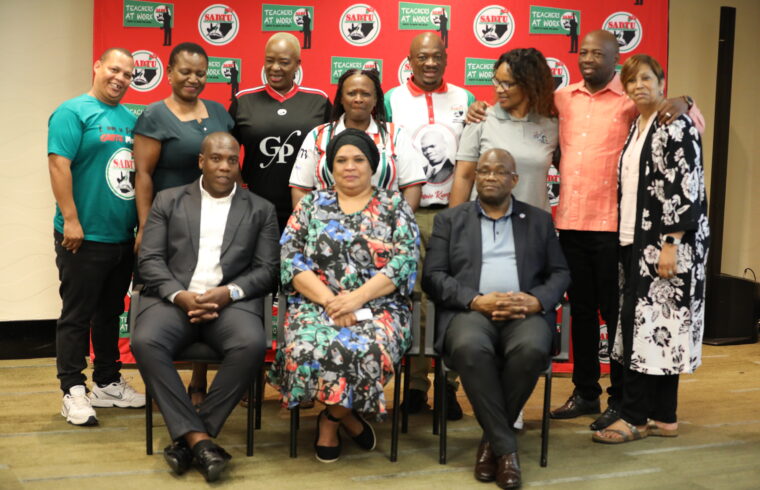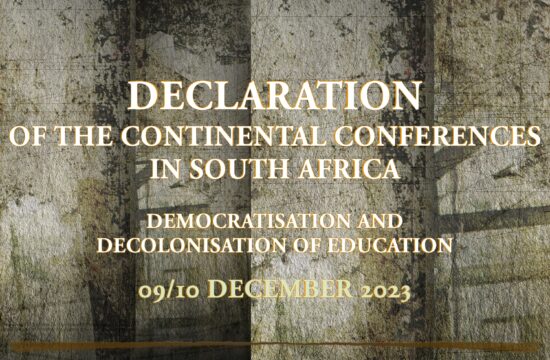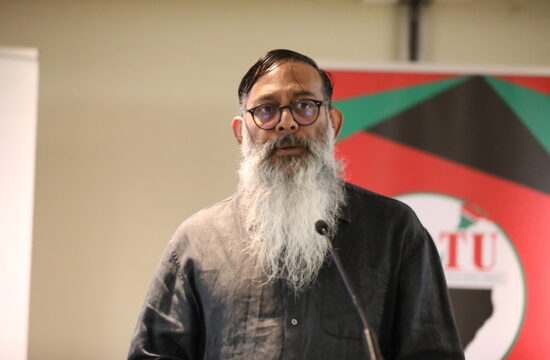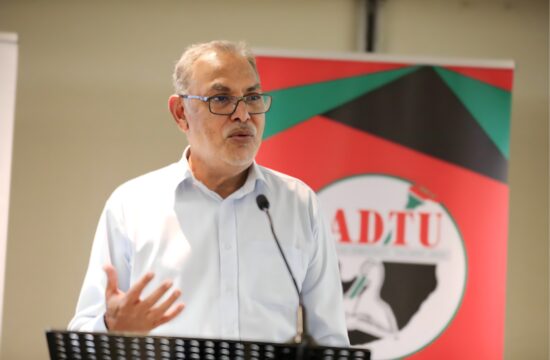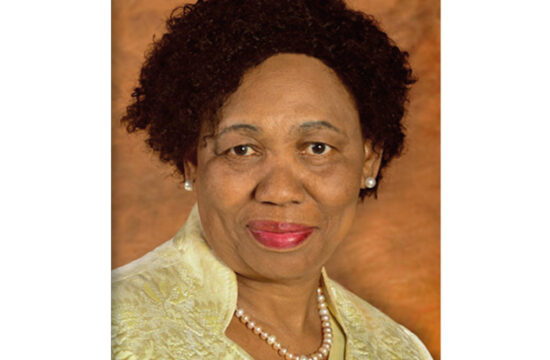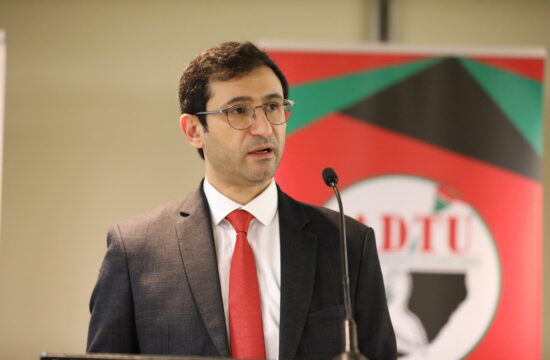SADTU
The South African Democratic Teachers’ Union (SADTU) represents approximately 270 000 teachers and education support personnel, and also affiliated to Education International, a global trade union with approximately 32.8 million members across the globe. The esteemed delegation in the symposium included – General Secretary, Cde Mugwena Maluleke, Deputy President, Cde Mabutho Cele, Vice President-Education, Cde Faseega Solomon, Members of NEDCOM, Research Officer, Dr David Matsepe, Education Officer, Dr Renny Somnath, and Legal Officer, Cde Cindy De Lange.
We reiterated that free quality education for all is a fundamental human right, as enshrined in the Universal Declaration of Human Rights. We believe that quality education nurtures human talent and creativity, thereby contributing to the personal and professional development of the individual person, as well as to social, cultural, economic, political and environmental development of society at large. It promotes peace, democracy, creativity, solidarity, inclusion, a commitment to a sustainable environment, and international and intercultural understanding.
We have observed with disgrace how poverty, marginalisation and the recent impact of COVID-19 has left millions of school going children out of education. We have also witnessed the extent to how education businesses (Edu business) and education technology companies (EdTech) are exploiting the COVID-19 crisis and long existing digital divide to expand their business opportunities and privatise education. We believe that privatisation of education is mainly as a result of inadequate financing and funding of public education.
We call on the governments and civil societies to intensify awareness campaigns on the impacts of privatisation of education and work with local communities to advocate for human rights-based education policies. To further ensure that protagonists and providers of private education comply with international labour laws, particularly concerning equal pay and hiring practices; ensure that teaching staff are qualified and that they have access to continuing professional development. We also call to UN Special Rapporteur on the Right to Education to work with all relevant stakeholders to develop a clear set of human rights-based guidelines for States when considering laws, policies and programmes that consider privatisation of education or that have a privatising effect in order to ensure the protection and promotion of international human rights legal standards. We urge United Nations Treaty Bodies to prioritise addressing the issue of privatisation and its impact on the realisation of the right to education.

